United Way Mini-Grants Encourage Springtime Volunteering
Published on May 1, 2024 in Volunteerism
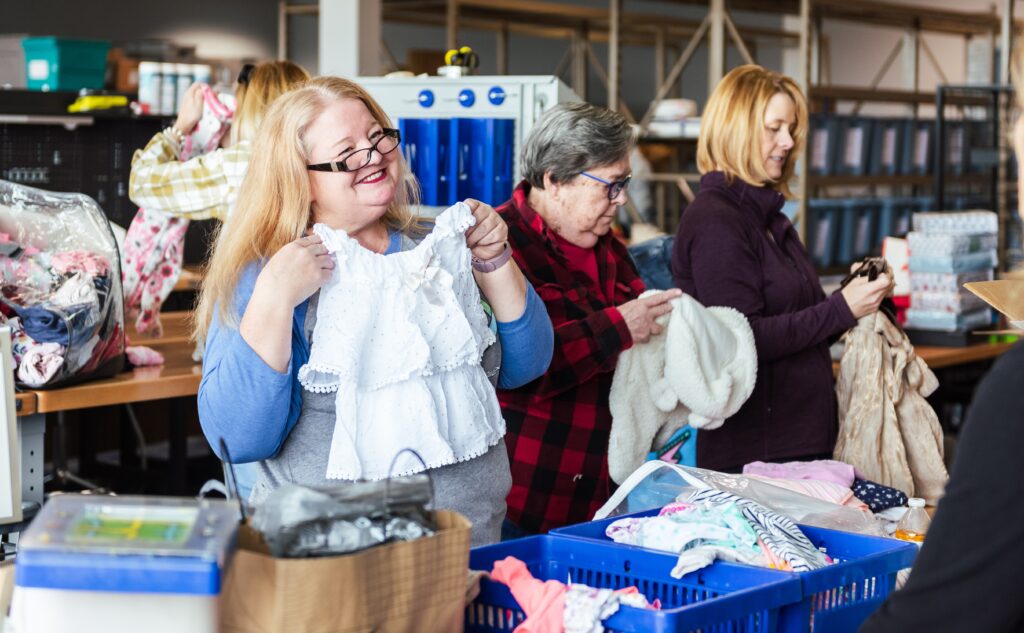
April is Global Volunteer Month, a time when we intentionally pause to celebrate the impact and power of volunteers who dedicate themselves to making a difference in their community.
We kicked off the month with our Volunteer Honor Roll, featuring stand-out do-gooders across Macomb, Oakland, Washtenaw and Wayne counties. To celebrate Global Volunteer Month and build momentum, United Way for Southeastern Michigan also provided $1,000 mini-grants to 10 local nonprofit and community organizations.
“We designed these mini-grants to be low-barrier for organizations that may not typically qualify for traditional funding so that they can engage volunteers in projects,” said Kristen Cibulskis, director of engagement at United Way for Southeastern Michigan.
“This funding allows organizations to tackle challenges while engaging their supporters and community in making meaningful change to the neighborhoods they live and work in.”
Mini-grant projects ranged from spring clean-ups beautifying areas of Methodist Children’s Home to seeding gardens that will provide fresh homegrown vegetables and flowers for the community around Yad Ezra.
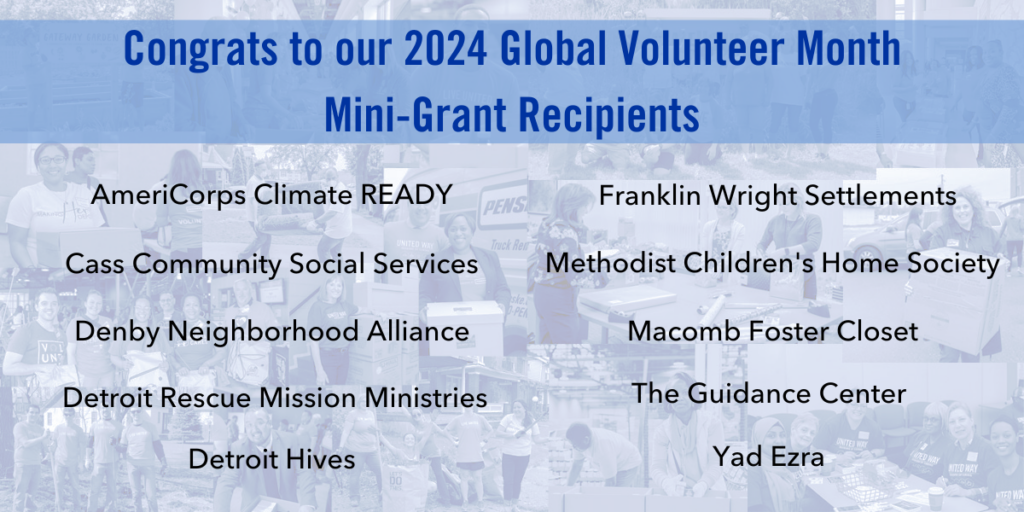
BEE A VOLUNTEER
Detroit Hives Founders, Timothy Jackson and Nicole Lindsey, joined United Way’s What’s the Word Wednesday to share about their work to turn vacant lots into pollinator gardens, as well as their newest initiative on making Detroit a Bee City USA affiliate.
With the mini-grant, 60 volunteers will be turning the State Fair and Hoover Pollinator Parkway into a green community hub.
“Volunteering is a great way to give back to your community, foster a sense of unity, and increase self confidence. as well as learn about our organization,” said Timothy.
“It’s a great opportunity to get the next generation outdoors,” added Nicole.
Local volunteers will help rid sites of trash and debris, plant oriental grasses, perennials, fruit and shade trees to support our pollinators and combat food insecurity and climate inequity. One lot at a time, Detroit Hives is transforming the city and that was the intention from the start.
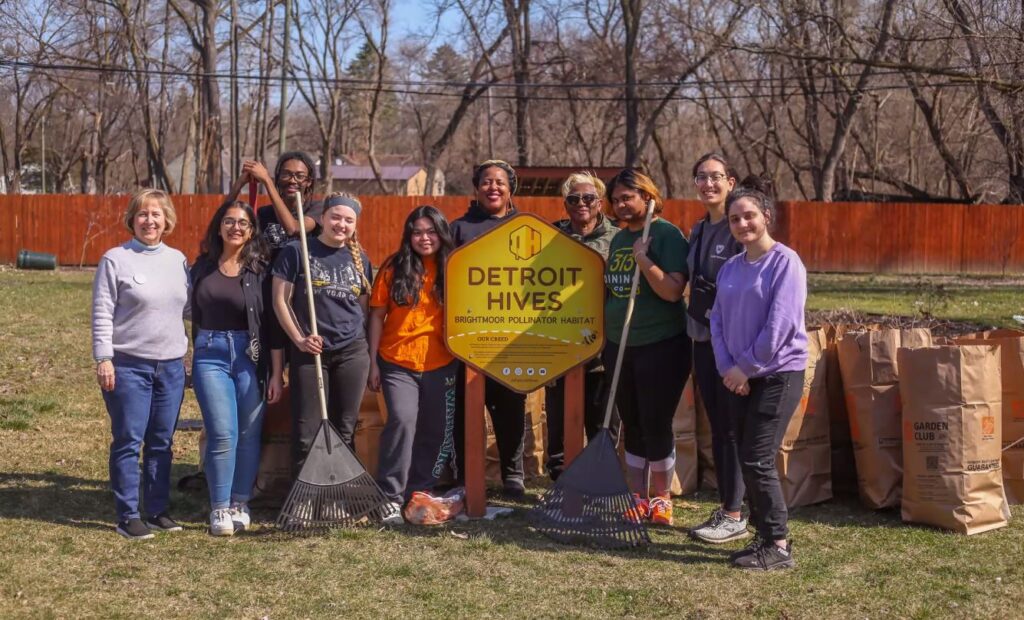
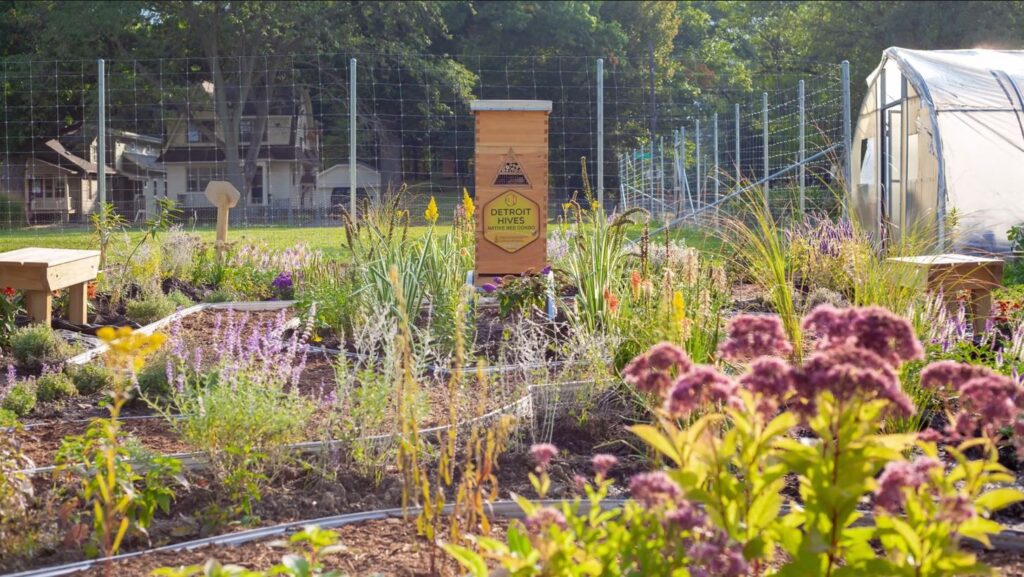
“Our magical world of conservation all stemmed from a call to action from the City of Detroit—they announced that our city currently had over 90,000 vacant lots in 2016,” said Timothy. “Nicole and I wanted to find a way to give back and change the narrative of what people think about our city.”
“We wanted to find a way to transform blighted vacant lots into something that productive for both people and pollinators.”
After experiencing the healing effects of local raw honey, Timothy began to research local pollinators. Then, Nicole had the idea to transform vacant lots into educational bee farms. After becoming certified beekeepers, Nicole and Timothy have mobilized community members to make a better Detroit for everyone, including the bees.
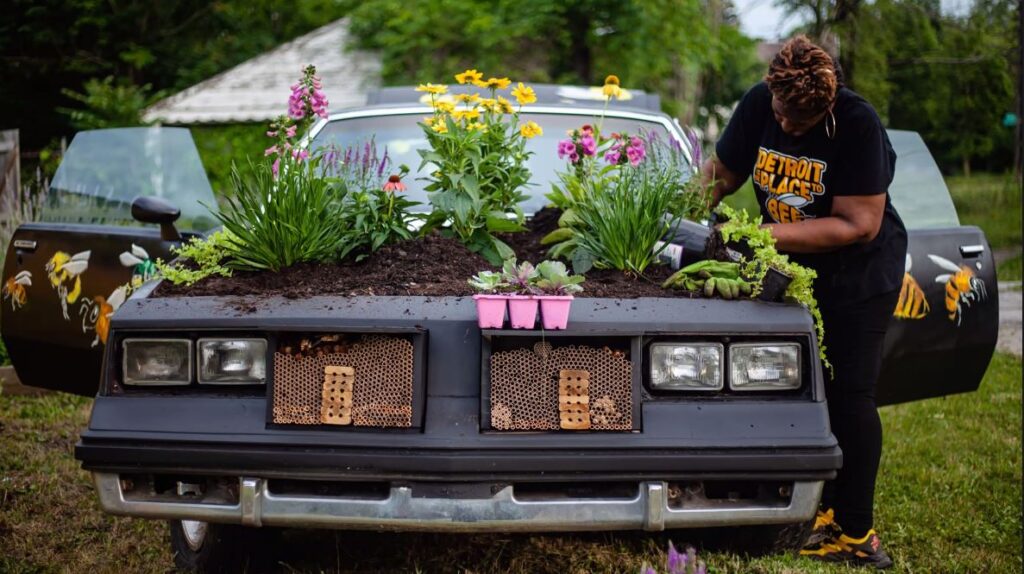
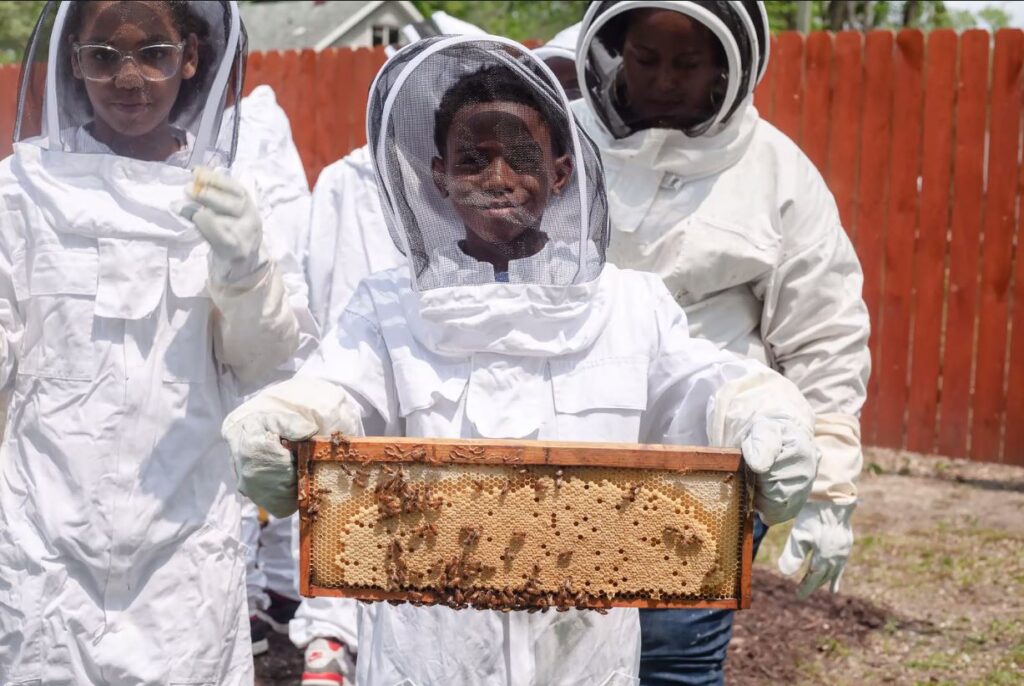
RIGHTING HISTORICAL WRONGS
Another outdoor project is through AmeriCorps Climate READY, who have devoted their funding to flood prevention in the Jefferson-Chalmers Neighborhood. Volunteers install gutter extensions on downspouts, rain barrels, rain gardens, grade soil at the base of the homes and caulk cracks in the foundation to prevent water seepage. Nich Betz-Thorn has been getting involved with AmeriCorps for over half a year, and he appreciates being able to work outdoors.
“I moved to Detroit, and I was looking for some conservation work,” said Nich. “I wanted a switch up from the indoor daycare work to be more in nature and outside— that’s when I came across the Climate READY Project.”
“We are giving the rain places to go that isn’t in the homeowner’s basement.”
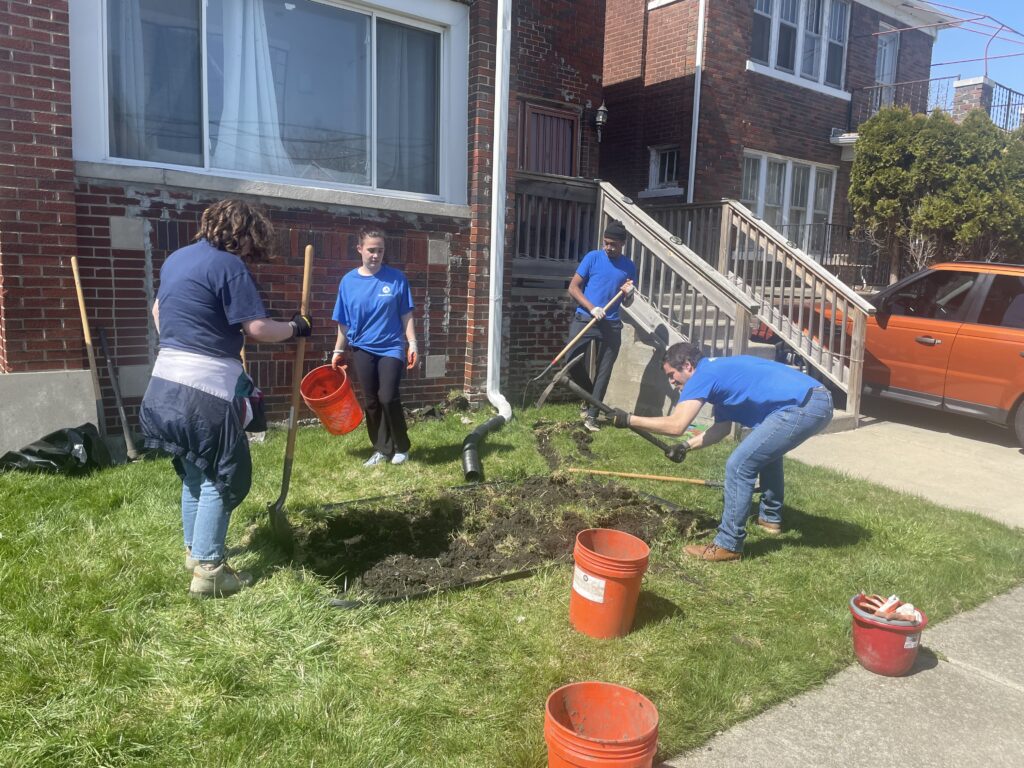
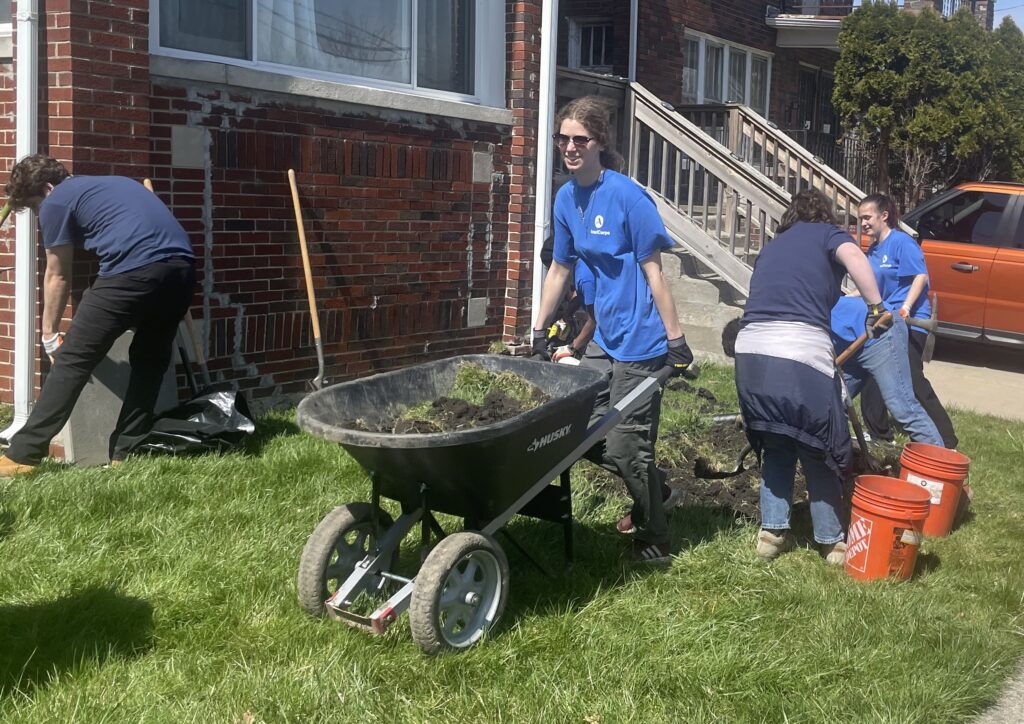
The Jefferson-Chalmers Area is right next to a canal of the Detroit River that lacks a sea wall— sea walls allow water levels to rise during floods without endangering the neighborhood homes. Looking at the canal, the racial and economic equity issue is obvious. The Jefferson-Chalmers side of the canal has no sea wall, but the Grosse Pointe side does.
“A lot of people don’t realize Detroit has canals,” said Kendall Casey, unit manager at AmeriCorps Climate READY. “Unfortunately this area is prone to flooding for a number of reasons.”
Recent research by University of Michigan-Dearborn Professor, Jacob Napieralski, showed historically redlined neighborhoods housing people of color, immigrants and people of lower socioeconomic status were at increased flood risk.

“There’s been 5 floods and backups since I’ve been here,” said Traci Rubin, community homeowner. “Sometimes it’s the water treatment center and when the electricity is out, we are the lowest point.”
Each flood has the potential to destroy property and leave behind mold, resulting in adverse health effects like asthma. Climate change increases the frequency of severe weather events, so it is imperative that this community take flood prevention measures to protect their homes and health.
“After the flood, there was mold on the ceiling in the basement— luckily, a guy from the city helped me even though he wasn’t supposed to,” said Traci. “But I’m a severe asthmatic, and I’ll stop breathing for no reason.”
The AmeriCorps interventions make a big difference in the absorption of rainwater and prevention of flooding. So far volunteers have served 61 homes in the neighborhood, with a goal to make the entire community safer one house at a time.
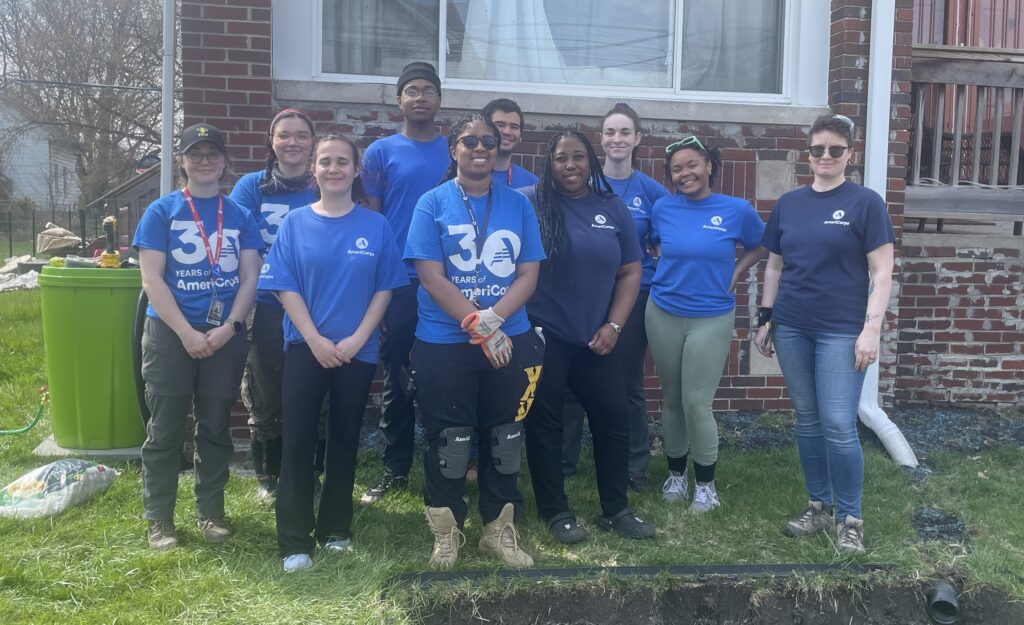
“We always wish for funding and good weather so that we can continue to do as much as we can— but hey, so far so good, we’ve been lucky!’ said Deandra Smith, program director of Climate READY. “And thanks to United Way’s grant we’ve been able to do so many more houses.”
“Everything that we are doing outside today was funded by the Global Volunteer Month grant, from the rain barrel and rain garden to the gutter extensions and caulking.”
ENSURING BASIC NEEDS ARE MET
In Mount Clemens, more volunteers gathered at the Macomb Foster Closet for their sorting project to support children in need. Children placed in foster care often have only the clothes on their backs. For the past 7 years, Rita Nichter has been volunteering with Macomb Foster Closet, she has donated and sorted donations, stocked shelves, fundraised, helped with renovations and built special occasion kits for the kids.
“It gives the foster parents an outreach space, knowing they have a place to come and be able to give their fosters a sense of identity, because most come with nothing,” said Rita. “And if we can help in anyway to put a smile on their faces, that makes all the difference.”
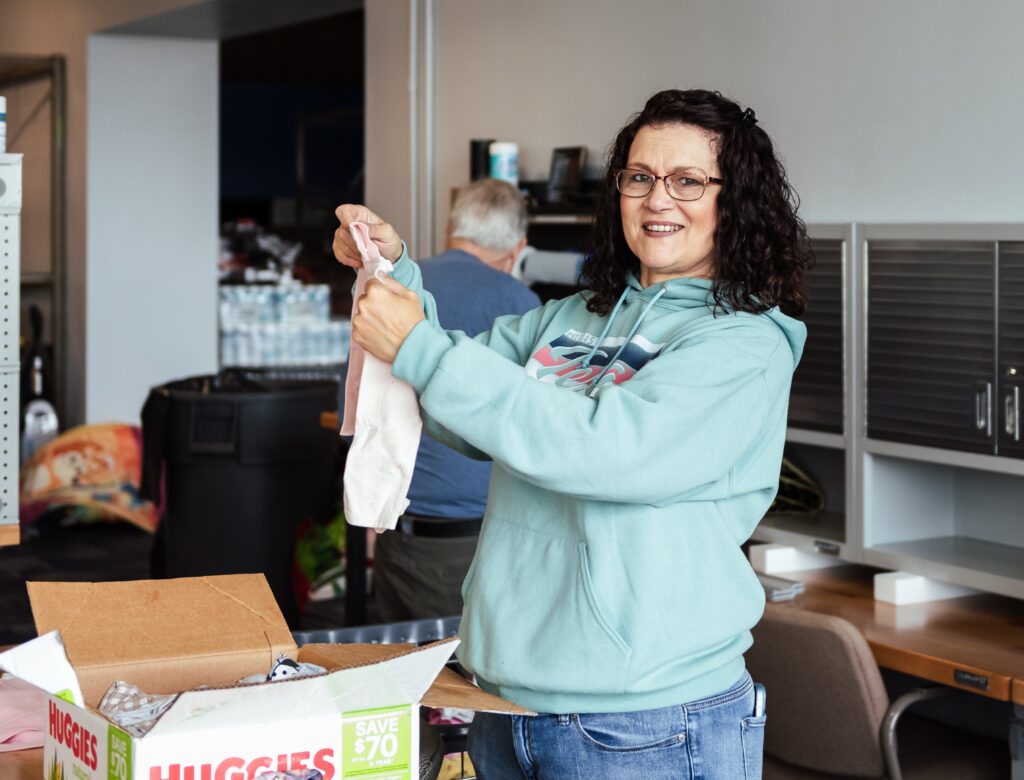
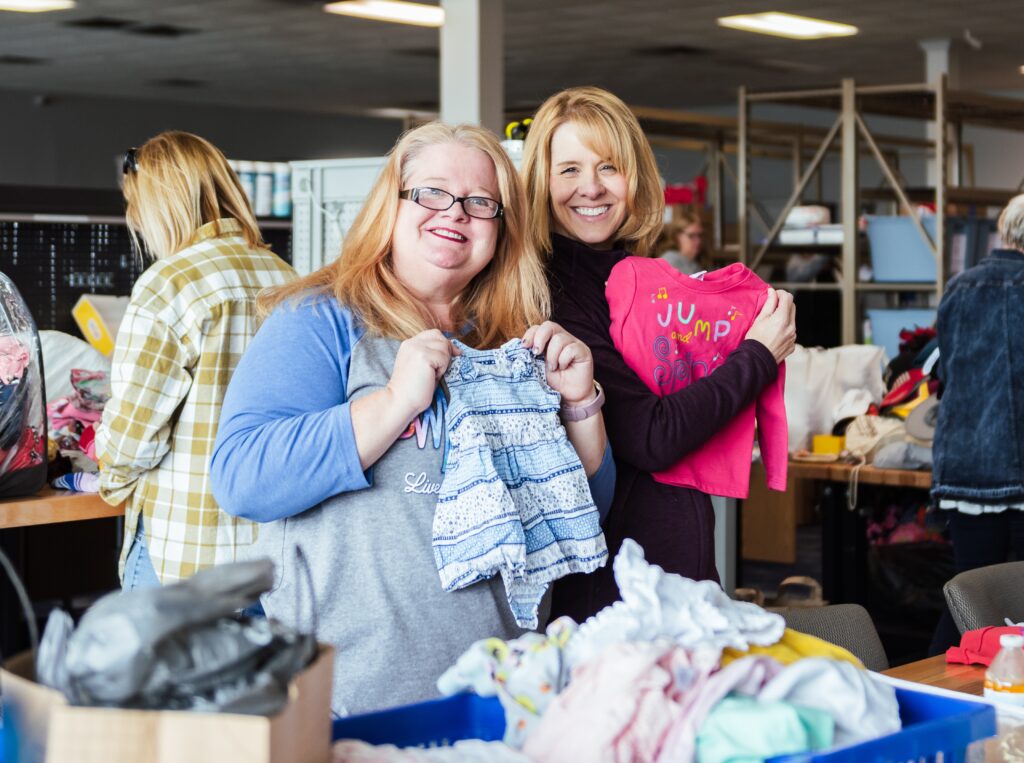
The sorting project is dedicated to replacing all essential items quickly so that children can access everything from clothing, shoes, coats and baby items, to personal hygiene items and school supplies.
“We are fundamentally based around the concept that kids effected by in the child welfare system can come in and pick out all their own stuff,” said Fred Huebener, board member at Macomb Foster Closet. “And it’s an environment that doesn’t feel like charity– that’s a big element of what we do here, it shouldn’t feel like their just getting free stuff, it should feel like their shopping.”
In total, volunteers will serve over 2,000 children yearly in Macomb, Oakland, and Wayne counties. This month’s volunteers ensure that the closet provides clean, usable, and dignified items for children in need. They also stock items that are important to childhood experiences, like birthday gifts, Christmas stockings, and Easter baskets.
“Volunteering at the Foster Closet brings such a whirlwind of emotions,” said Rita. “I have wanted to foster myself for so many years, and just being able to see the gratitude and happiness that the kids have when they come through the closet just fills me with such love and joy.”
“I inspire to do better for them so it shows them that someone cares.”
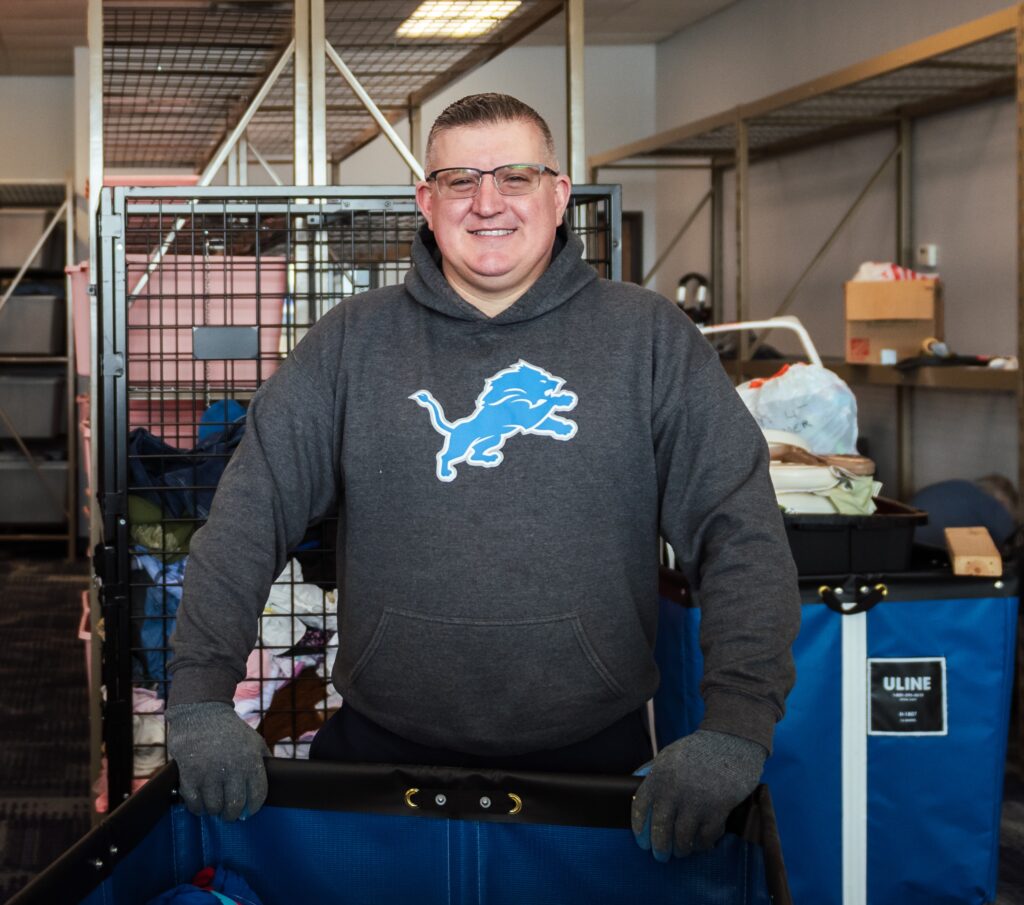
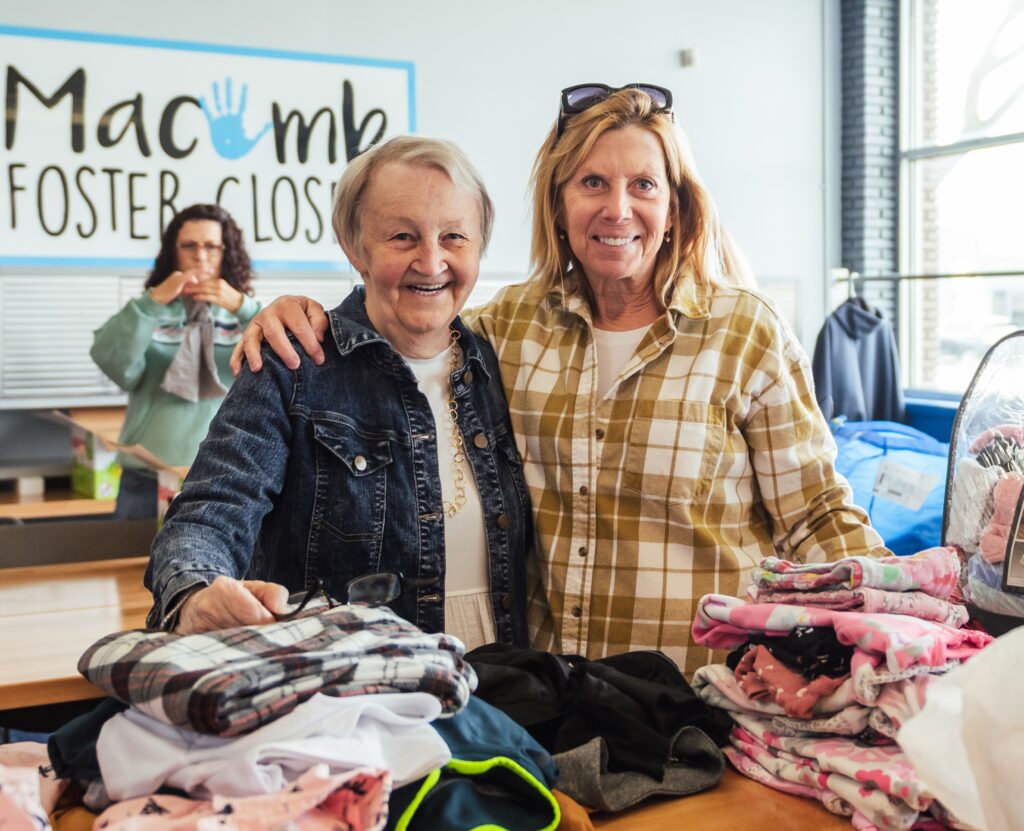
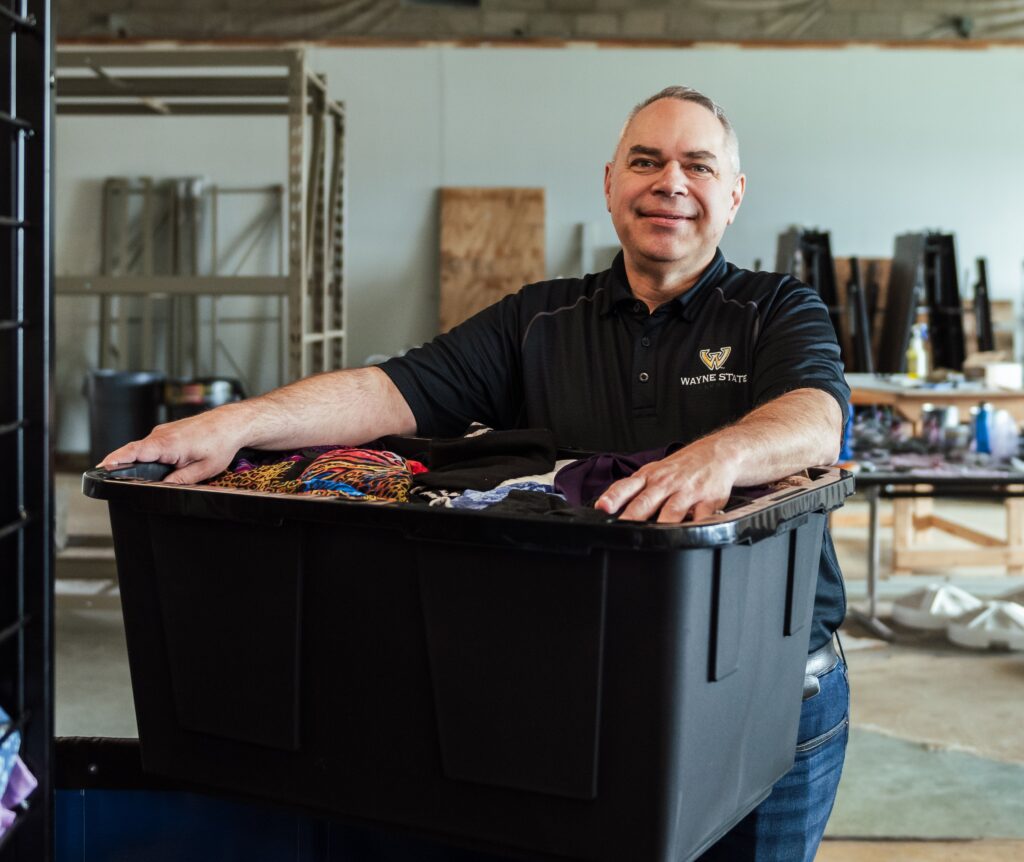
Macomb Foster Closet volunteer’s support is so important to the vulnerable population of children who are in foster/kinship care, adopted or aging out of foster care. Oftentimes the closet is the only means to ensure that the children’s basic needs are being met.
Marsha Kumpuris has been a volunteer at Macomb Foster Closet for two years, beginning after retirement.
“Upon retirement, I knew I wanted to give back and somehow I found the Foster Closet— the best find of my life!” said Marsha. “I have met so many wonderful people who do their best to provide a good safe place for these children.”
“Knowing some of these children had nothing or very little going into foster care broke my heart and knowing we can make a difference is a wonderful feeling.”
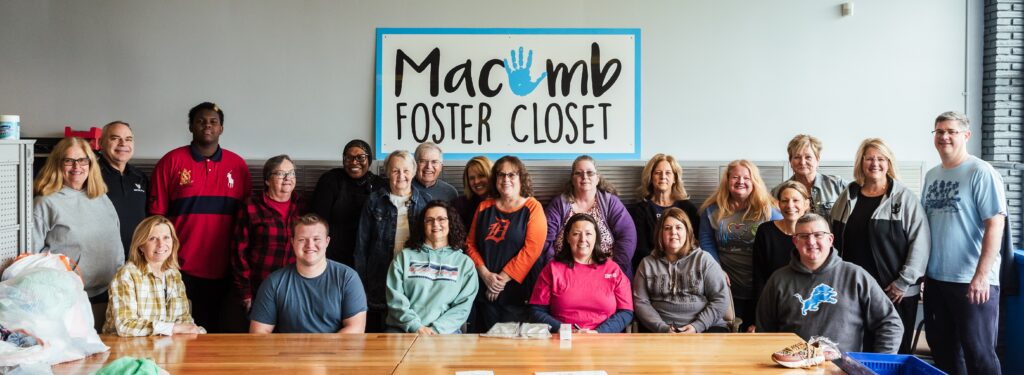
While Global Volunteer Month is the perfect time to get involved in a meaningful project, there are opportunities available year-round on our Volunteer Portal.